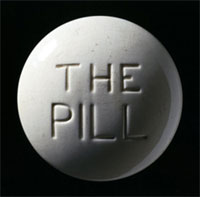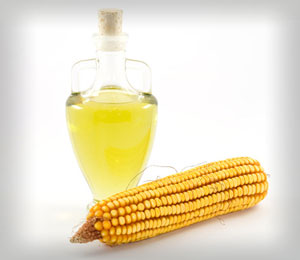Natural Treatment for Hypothyroidism
The term “natural treatment” is quite subjective to say the least. For most, it simply means treating their hypothyroidism symptoms with natural supplements and without the use of medical drugs. But should that really be considered natural? When it comes to a natural treatment for hypothyroidism, I believe that there’s a far more “natural” means that are entirely neglected.
When you think in terms of a natural treatment for hypothyroidism, it’s important to grasp the importance of supporting your body’s natural ability to heal rather than relying entirely on supplements.
Supplements definitely have their place but you have to keep in mind that you didn’t become hypothyroid because you are deficient in supplements.
The Importance of Your Diet
Most people fail to understand that your diet is by far the most important factor in any natural treatment for hypothyroidism.
The foods that you eat have far reaching effects when it comes to your thyroid. Your diet dictates your hormones, the health and functionality of your digestive tract, and many other processes that all greatly impact hypothyroidism.
So I want to strongly iterate the point that if your diet is not properly supporting your thyroid then you will never truly heal. And some people can partially compensate by relying entirely on supplementary hormones but this does not offset the damage that is done by a poor diet. And sooner or later, it will catch up with you one way or another.
Below I’m going to outline 3 key components of a truly natural treatment for hypothyroidism.
Balancing Your Hormones
Your hormonal system is far more intertwined than you probably realize. Every hormone tends to affect the others either directly or indirectly. And this is why balancing your hormones is a necessary part of any natural treatment for hypothyroidism.
Estrogen and Progesterone
Hypothyroidism tends to be more prevalent among females and it’s because they naturally produce a lot more estrogen than men do which makes them much more susceptible to the hypothyroid effects of excessive estrogen. But this is also becoming a more common issue with men these days.
Once your estrogen levels get out of balance they tend to cause an exponential problem. And that is because there is a feedback mechanism that causes hypothyroidism to promote the buildup of estrogen while estrogen further suppresses your thyroid. So it’s easy to see how this can cause your thyroid to spiral out of control.
Progesterone on the other hand works to offset the negative effects of estrogen and promote the healthy function of your thyroid.
Insulin and Cortisol
Another pair of complimentary hormones that require balancing as part of the natural treatment for hypothyroidism are insulin and cortisol. And these hormones work together in order to help maintain proper blood sugar levels.
Insulin is important because it plays an active role in delivering key nutrients to your cells as well as helping your liver to store the glycogen it needs to convert your inactive thyroid hormone to its active state.
And cortisol has an opposite effect and should be kept to a minimum as part of your natural treatment for hypothyroidism. Under times of stress and when blood sugar drops too low, cortisol is released to bring your blood sugar back up. But it also has many anti-thyroid effects such as blocking the liver from converting your much needed hormones.
Pregnenolone
I also wanted to touch on the importance of the hormone pregnenolone in this equation.
Pregnenolone is the precursor hormone for all of the highly protective steroid hormones that your body naturally produces. These hormones include progesterone and DHEA. But when you’re hypothyroid, your body can’t produce the pregnenolone that it needs because it requires thyroid hormone in order to do so.
Supporting Your Liver
Few people understand the important role that your liver plays in the whole thyroid process. And so it’s easily a forgotten part of the natural treatment for hypothyroidism.
If your liver is not healthy then it cannot properly store glycogen. And your liver requires a good amount of glycogen or sugar to properly convert your thyroid hormone to its active form to be used by your body.
Also, when your liver is unhealthy, then it cannot properly detoxify all of those estrogens that I talked about above which is such an important part of your natural treatment for hypothyroidism. If your liver can’t detoxify estrogen, then it will continue to build up, making you even more hypothyroid along the way.
When problems like this are not corrected then as the problem worsens, you can easily become more and more dependent on supplements and find that they are losing their effectiveness.
Choosing the Right Supplements
Before discussing the role of supplements in your natural treatment for hypothyroidism, I think it’s important to again reiterate the fact that your diet must come first and foremost. As I mentioned earlier, without focusing on your diet, any sort of hypothyroidism treatment is going to be far less effective.
But it’s also important to talk about the natural effects of aging and other factors that do affect your thyroid, which you might not have complete control over.
As you age, your hormone production changes and you begin to naturally produce less thyroid hormone and many of the protective steroid hormones. And this allows many of the other anti-thyroid hormones to have a greater effect on your health.
And this is when the right supplements and/or medication become a necessary part of even a natural treatment for hypothyroidism.
Fine Tuning
It’s important to find the right supplements and at the right amounts to meet the specific individual needs of your body.
For example, some people need only the thyroid hormone T3. Other’s need some combination of thyroid hormones T4 and T3. And this is a process that can take some time to figure out. But when you do find the right combination the results can be amazing.
It’s also important to keep in mind that as you progress through this natural treatment for hypothyroidism and your other hormones begin to balance, they too will impact the effectiveness of any supplementary thyroid hormone you take. For example, as your stress hormones decrease, your need for thyroid hormone will increase.
Hopefully by now you realize that a natural treatment for hypothyroidism involves much more than just using natural supplements. It involves utilizing your body’s natural healing ability to correct the underlying imbalances and dysfunction that led you to become hypothyroid in the first place.

 Birth control pills contain small doses of estrogen that increase your body’s estrogen levels up through the time of ovulation. And the increase in estrogen causes the cells of your uterus to consume more oxygen. And when your uterus consumes more oxygen, it literally steals the oxygen that is required to support the implanted egg, or embryo. Without enough oxygen, the egg cannot continue to develop.
Birth control pills contain small doses of estrogen that increase your body’s estrogen levels up through the time of ovulation. And the increase in estrogen causes the cells of your uterus to consume more oxygen. And when your uterus consumes more oxygen, it literally steals the oxygen that is required to support the implanted egg, or embryo. Without enough oxygen, the egg cannot continue to develop. Another common and significant source of estrogen is from estrogenic chemicals such as xenoestrogens which are prevalent in plastics, pesticides, and many other industrial chemicals.
Another common and significant source of estrogen is from estrogenic chemicals such as xenoestrogens which are prevalent in plastics, pesticides, and many other industrial chemicals. This is a major cause of hypothyroidism and infertility that nobody ever hears or talks about. And it has a lot to do with the fact that this is a very controversial topic. But in the end, the research speaks for itself.
This is a major cause of hypothyroidism and infertility that nobody ever hears or talks about. And it has a lot to do with the fact that this is a very controversial topic. But in the end, the research speaks for itself.